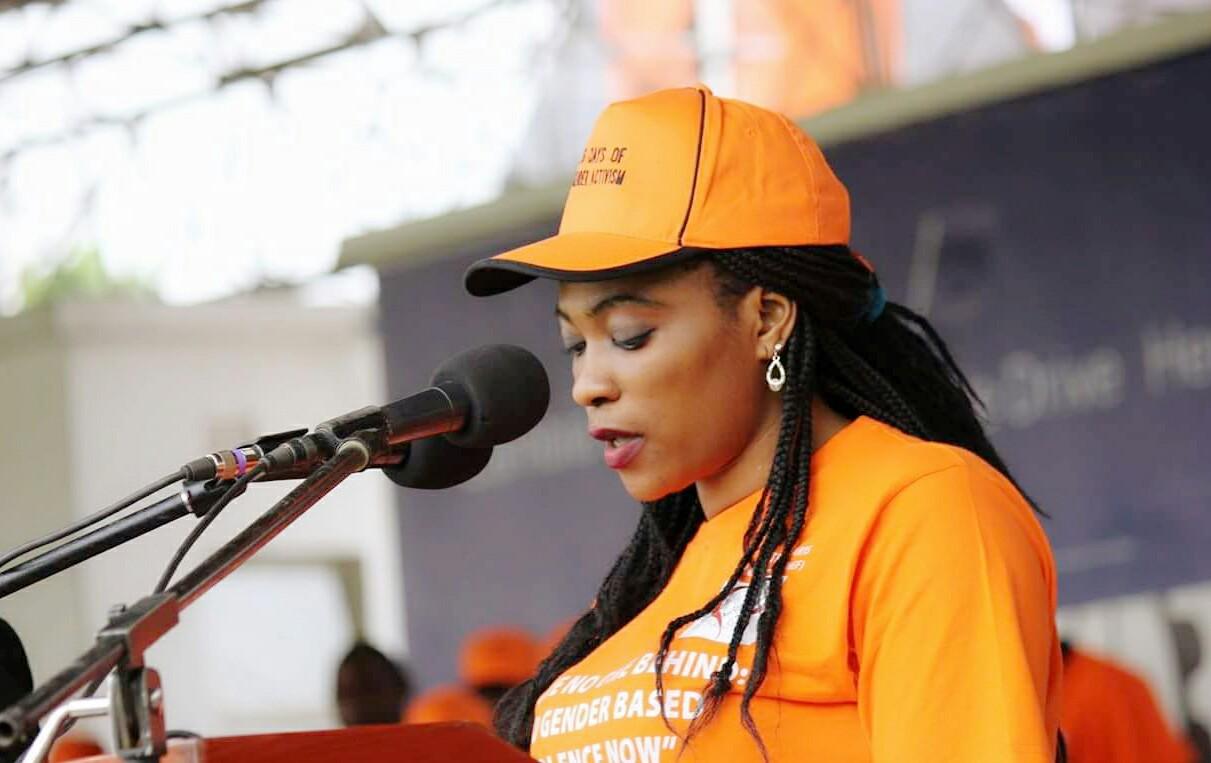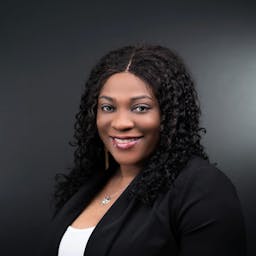Changing traditional systems to achieve security and peace of women in Zambia
Sep 10, 2019
Story

Our cultural, traditional and religious background places a lot of demands on us as African Zambian women and influences how we behave and talk, what we wear and what we can and cannot do. This has greatly contributed to how women perceive themselves in our Zambian society and how society responds to their needs. It is for the above reason why many women feel insecure in their own homes and communities. This insecurity also comes from the way women are viewed when they speak out on issues that directly affect them.
But what does security and peace mean to me? And why is it important? Well, security and peace to me means being able to express myself without the fear of intimidation, victimization and oppression. Being secure and at peace also means that I should be protected from all forms of violence, accorded the respect I deserve as a woman and given an audience to express myself without limiting my freedom of speech. And above all security means being able to feel safe and free from any form of abuse in my own home, community and country. A lack of security and peace of women automatically results in violation of their rights. The kind of security and peace that we should rightly enjoy is often taken away from us by people who don’t regard us as equals. Given a chance, women are excellent contributors because of their analytical and critical thinking abilities. Without a sense of security and peace, women are unable to fully realise their potential.
Women are in most cases vulnerable, it is for this reason that they should feel safe, secure and at peace in their homes and communities. Sadly, we are constantly looking out for ourselves and our children in a country that has recorded an increase in violence against women, girls and children. In the first quarter of 2018 as reported by the Police, 5,940 cases of Gender Based Violence (GBV) were recorded. The 2018 first quarter statistics represents a 0.8 percent increase compared to the 5,464 cases recorded during the first period in 2017.
A total of 645 cases of Child defilement were recorded representing 10.9% of the reported cases out of which 642 cases were against girls while 03 cases were against boys compared to 2017 where 627 cases were recorded indicating an increase by 18 cases or 2.8%. The country also recorded 31 cases of indecent Assault of which 20 were female adult victims and 11 were girl victims. 21 GBV related murder cases were recorded countrywide out of which 12 were female adult victims, 06 male adult victims, 01 girl and 02 boys compared to 2017 during the same period where 24 GBV related murder cases were recorded translating to a reduction by 3 cases or 12.5% decrease.
Out of 5,940 GBV cases reported countrywide, 760 cases were taken to court resulting in 109 convictions, 30 acquittals, 69 withdraws and 552 were still pending in various courts of law around Zambia, 2,748 cases were withdrawn at Police Stations while 2,432 were still under investigations. The number of withdrawn cases and those that were still under investigations raises a lot of questions; were victims withdrawing because they were threatened, victimized or paid off to silence them by suspected perpetrators?, was it due to insufficient evidence? Or were perpetrators family breadwinners and victims were afraid to lose the financial or material benefits if their abusers were sent to prison? So many questions can be raised but the alarming and chilling thought is that possible violent and dangerous individuals may have been allowed back into society causing further loss of security and peace among women in homes and communities.
As a survivor of incest and childhood sexual abuse, the above statistics do not surprise me because I believe there are many more women, girls and children who have and are still experiencing different forms of gender based violence countrywide. With particular focus on incest which is considered a taboo in many cultural settings in Zambia, few dare to speak out because of the fear of being victimized and labeled.
To instill the lost sense of security and peace in Zambia, women should take up more key decision-making positions. By doing so, they will be able to address the many concerns of all women in Zambia and make valuable and powerful contributions to matters that directly affect us. When it comes to advocating for the rights of women in Zambia, the response is mauled with criticism and victimization from some people in certain sections of society who feel women should not be ‘loud’ or should not advocate for their rights because culture, tradition and religion as already set the appropriate code of conduct for them. One would ask what this so called ‘appropriate code of conduct’?, well it is basically a culture of silence that in many ways forbids the woman to speak out even on issues that directly affect her or violate her human rights. Some people have gone to the extent of calling human rights activists such as myself as ‘uncultured and lost’ simply because we refuse to be viewed as inferior human beings. We are called names because we advocate for gender equality in a country that still considers a boy child as a superior child. What we want is to be free from patriarchal systems that limit our freedom of expression as women. We need to get rid of the traditional system of doing things that dictate and suggest that a woman can not be a leader, the system that says gives a boy child more educational opportunities than the girl child and that says that women must remain silent even when being abused in a marriage. Such systems are oppressive and offer no sense of security and peace of women. They are retrogressive to what we are advocating for as women rights organizations.
The few women in high positions may not strongly represent women because they are outnumbered but having more women appointed to address the issues of women can make a huge difference. To be able to feel safe and secure, sufficient and adequate, women should be given equal opportunities that are free of sexual harassment and intimidation.
As it is, we are faced with many challenges as women and that is why organizations like Liberated Hearts Foundation, are strongly advocating for the rights of women, girls and children. The rights of women should be respected but sadly many at risk and sexually violated women have no one to support them or listen to them. This discourages many women from speaking out but as a founder and Executive Director of Liberated Hearts Foundation, I continue to raise awareness on sexual violence and how it affects victims. Like many other survivors, I have been called names and at times I felt helpless and defeated. This has not stopped me from reaching out to women who have lost hope. As a way to reach out and make a great impact in raising awareness on sexual violence, I have since written a book titled ‘Glow after Pain that gives a detailed account of my journey as a survivor of incest, childhood sexual abuse and gender based violence. Furthermore, by engaging the community, relevant government authorities and other stakeholders on issues that affect women, we can make our communities and homes safe and peaceful. It is collective effort that results in social change. Therefore, all systems need to be unified so that we all speak the same language and maintain the same stance on the security and peace of women in Zambia. As long as systems remain parallel and the gender divide widens, women will remain oppressed since their sense of security and peace will be completely taken away.
In conclusion, to fully create safe, secure and peaceful homes and communities, we need to go back to the drawing board as Zambians and position ourselves strategically to achieve gender balance at all levels. The gender imbalance continues to depict the woman as a lesser being and incapable of leading or making good decisions. This kind of traditional kind of thinking threatens the security and peace of women and that is why Liberated Hearts Foundation believes that every woman, girl and child deserves to be in an environment that is safe and peaceful. It is our right and it must not be robbed from us.




